Fritextsökning
Artiklar per år
Innehållstyper
-

She creates pharmaceuticals on a 3D printer
The correct dosage for each individual, regardless of whether the pharmaceutical is for a seriously ill child or a frail elderly person, is the mission of a well-advanced project with 3D-printed drugs at Uppsala University. “It will soon be available in clinics”, says Christel Bergström, who is heading the project.
-

Neanderthal genes and Nobel Prize in a popular lecture at Bioscience
An inherited gene variant from our ”evolutionary cousins” – the extinct Neanderthals – may affect how our bodies break down certain drugs. “It’s only a matter of time before we actively start screening for it,” said KI researcher Hugo Zeberg when describing the study at Bioscience 2022.
-

He is heading a new company for the development of Coegin’s cancer drug
The biotechnology company Coegin Pharma places the development of its drug candidate AVX420 in a newly formed company, Avexxin Oncology, based in Norway, and John Zibert will be the CEO.
-

Biosimilars bring price pressure, but are they sufficiently used?
When biosimilars were introduced just over 16 years ago, hopes were raised that they would give many more patients access to effective but otherwise extremely expensive treatments with biological drugs. So, how well has Swedish healthcare used biosimilars? The answer partly depends on whom you ask.
-

Bought a tablet factory – and built his own empire
In 1995, Thomas Eldered was CEO of one of Pharmacia’s factories in the Stockholm area when the Swedish pharmaceutical giant, after a takeover, decided to move its production abroad. 34-year-old Thomas was facing an imminent risk of losing his job. However, instead, it actually turned out to be the starting point for one of the biggest success stories in Swedish life science.
-

Anna Törner: Kalashnikovs in a new guise
Thanks to resisting European regulatory authorities, Europe has been spared the opioid epidemic. In the 1960s, the situation was the opposite as the American pharmaceutical authority, the Food and Drug Administration (FDA), refused to approve thalidomide (Neurosedyn), writes Anna Törner in a column.
-

BioVentureHub CEO: “Companies with a high degree of interaction achieve greater success”
For the first time since its inception, AstraZeneca’s BioVentureHub can now recruit new companies, as some of its tenants have grown significantly and are leaving the hub. This is the message from the biohub’s CEO Magnus Björsne in an interview, in which he also highlights a study that points out that companies with a high degree of interaction with other companies achieve greater success.
-
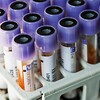
Besvikelse efter ofullständig studie – Immunovias aktie faller på börsen
Immunovias studie kring tidig upptäckt av bukspottkörtelcancer gav ofullständiga resultat och kunde inte utvärderas i sin helhet, meddelar företaget.
-
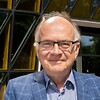
Göran Stiernstedt: “We are the world’s worst at continuity”
Failed investments in primary care, an unreasonable system with online doctors and a public failure at coordinating the healthcare IT system. Göran Stiernstedt does not mind his language when describing the shortcomings of today’s healthcare system. “It makes me extremely frustrated,” he says.
-

Tougher competition as the Novo Nordisk Foundation broadens its programme
Søren Nedergaard has worked with innovation at the Danish Government Offices and the University of Copenhagen. Today, he is COO of the Novo Nordisk Foundation, which has recently broadened its programme for leading innovators in medical research to apply to the entire Nordic region.
-
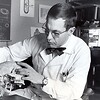
When carelessness, forgetfulness and coincidence become the researcher’s best friend
Forgetfulness, coincidence and a stroke of luck hardly make up a fruitful method of serious research. Or do they? Actually, a number of important medical advances have come about thanks to completely random incidents and the open-mindedness of scientists who were ready to think outside the box.
-
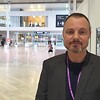
Det här vet vi om den nya coronavarianten omikron XE
En ny rekombinant variant av coronaviruset med namnet omikron XE har väckt uppmärksamhet. Life Science Sweden frågade Niklas Arnberg, professor i virologi vid Umeå universitet, vad vi vet om den nya varianten.
-
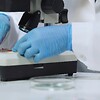
WHO: Nya omikronvarianten XE kan vara mer smittsam
Den nya varianten omikron XE kan vara tio procent mer smittsam än de tidigare omikronvarianterna, rapporterar WHO och uppmanar länder att återuppta sekvensering för att kunna upptäcka nya varianter.
-

This is how Anette Steenberg will put Medicon Valley on the world map
Anette Steenberg has been CEO of the Swedish-Danish life science cluster Medicon Valley Alliance since 1 November last year. Life Science Sweden called her to ask about her visions and the challenges of merging the worlds of Swedish and Danish life science.
-
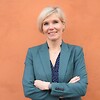
Marie Gårdmark: Finally, it’s time for a revision of the EU pharma legislation
A challenge for the EU Commission is to deliver a new framework that will also take care of another “pillar” of the pharmaceutical strategy, namely, to ensure that new medicines will be available for all citizens in Europe, writes Marie Gårdmark in a column.
-
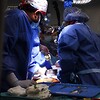
Patient som fick grishjärta återhämtar sig – inga tecken på avstötning
Den amerikanske man som fick ett genmodifierat grishjärta transplanterat i början av året återhämtar sig fortfarande på sjukhus. Efter fem veckor syns inga tecken på avstötning, enligt läkare.
-
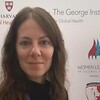
Giulia Gaudenzi: Innovation for good
"I challenge the innovator landscape to take a mental leap. Relying on innovation-solely to end inequality is not enough, therefore consciously and purposively – we need to engage bravely with the politics of poverty and scarcity. Even in life sciences", writes Giulia Gaudenzi in a column.